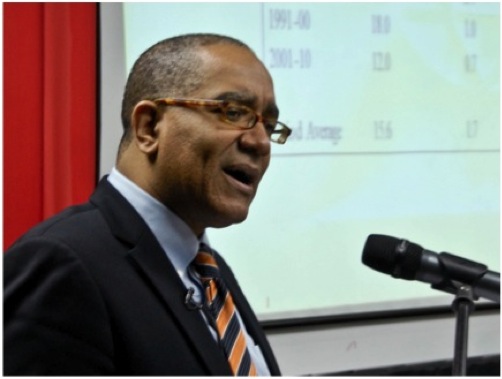Above: Bank of Jamaica Governor Brian Wynter (JIS Photo)
By the Caribbean Journal staff
The Bank of Jamaica has released a discussion paper outlining a proposal that would give the bank overall responsibility for financial stability in Jamaica.
The paper, which was posted on the banks’ website at the beginning of the month, outlines proposed amendments to the Bank of Jamaica Act that would mark a major policy shift.
Chief among them would be the creation of a Financial Stability Committee and the grant of discretionary powers to provide liquidity.
“One of the important lessons emanating from the global financial rises is that institutional responsibility for the stability of the financial system, as a whole, needs to be clearly defined, codified and assigned,” the paper said.
The paper noted an apparent uncertainty in financial oversight, given the number of agencies tasked with overseeing the financial system.
It said that, in order to address this deficiency, many jurisdictions had chosen to place this responsibility with their central banks.
“[The change] would complement the BOJ’s traditional direct approach to supervision of the deposit-taking system and expand both the focus and the scope of the consultative process currently conducted through the Financial Regulatory Council,” the paper said.
The liquidity powers would allow expressly for the provision of emergency liquidity assistance for banks in the event of systemic threats.
The amendments would also include macro-prudential oversight of financial institutions, along with the current mandate of direct supervision of individual institutions and sub-sectors within the deposit-taking system.
The amendment would also establish the Financial Stability Committee, which would be charged with the responsibility for coordinating the activities “pursuant to the objective of financial system stability.”
The bank would also conduct periodic stress tests to guard against potential systemic threats and consultation with financial industry stakeholders.
The FSC would include non-BOJ staff, and could contain provisions to ensure confidentiality requirements relating to the committee’s work.
